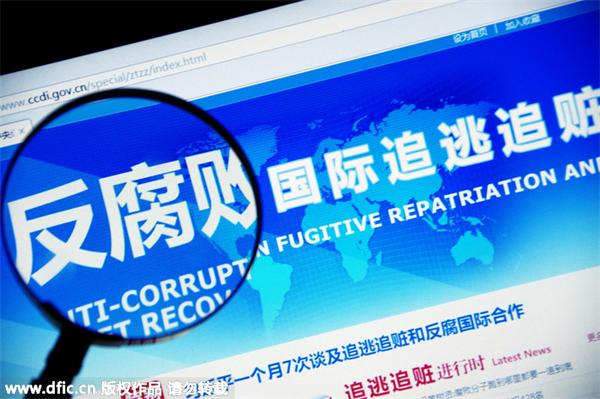 |
|
The Central Commission for Discipline Inspection (CCDI) of the Communist Party of China (CPC) opens a website to allow people to tip off the CCDI to corruption and other disciplinary violations. [Photo/IC] |
The three-year nationwide anti-graft campaign reflects the strong determination of the Communist Party of China led by Xi Jinping to eradicate corruption from the roots. In fact, ending corruption in officialdom is a distinctive feature of Xi's governance.
In this regard, the communiqué of the Fifth Plenum of the 18th CPC Central Committee in late October will serve as a guideline for not only economic and social development during the 13th Five-year Plan (2016-20) period, but also the country's future campaign against corruption. More efforts will be made to cement the achievements of the anti-graft campaign and devise an effective mechanism to eradicate corruption, as the official document emphasizes. This will also showcase the central leadership's determination to root out corrupt and potentially corrupt officials from the system.
For decades, building a clean and honest government and fighting corruption have been the top characteristics of Party building, but if petty corruption is not tackled seriously, depravity can make inroads into officialdom. That is precisely why Xi Jinping has advocated the "zero-tolerance" rule for even minor offenses within the Party.
The Fifth Plenum's communiqué emphasizes the need to get rid of both incompetent and overzealous officials - the former tend to refrain from performing their duties while the latter are often accused of flouting rules to intervene in public affairs.
That being said, the anti-corruption campaign should not stop at holding the "tigers", or corrupt senior officials, accountable; it has to take measures to fundamentally change the political environment to put "power in the cage" and further prohibit public servants from attempting to cross the red line.

I’ve lived in China for quite a considerable time including my graduate school years, travelled and worked in a few cities and still choose my destination taking into consideration the density of smog or PM2.5 particulate matter in the region.